
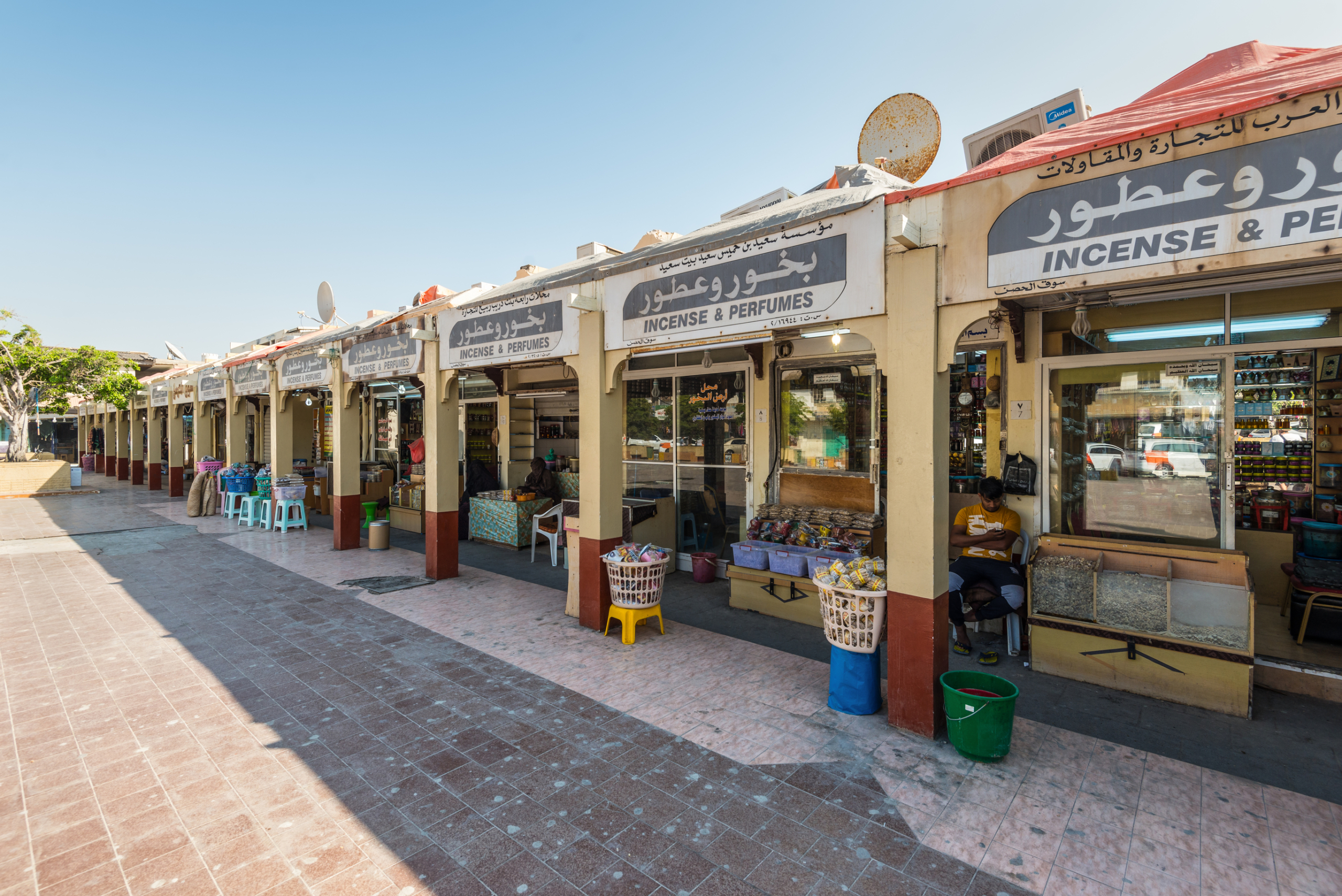
Exploring Al Haffa Souq: A Cultural Gem in Salalah
The rich aroma of frankincense greets visitors at Al Haffa Souq’s entrance, transporting them to a different era. This ancient marketplace in Salalah represents more than a tourist spot – it’s a living piece of Omani heritage that has witnessed centuries of trade and cultural exchange.
Al Haffa Souq stands as one of Oman’s most authentic traditional markets where old and new naturally merge together. Local vendors maintain their age-old trading customs and sell everything from precious frankincense and traditional textiles to modern souvenirs.
This piece delves into the historical significance, sensory experiences, and shopping wisdom that make this market unique. Ancient trading practices and authentic Omani products await as we explore this cultural treasure of Salalah together.
The Rich Heritage of Al Haffa Souq
The coconut groves of Salalah hide a treasure – Al Haffa Souq, a marketplace that tells stories from generations past. My walks through this historic market revealed its many fascinating names. Each name shows a different side of its character:
- Al Husn Souq (due to its proximity to the Sultan’s palace)
- Frankincense Souq (for its renowned frankincense trade)
- Luban Souk or Bakhur Souk (local names celebrating its aromatic heritage)
Historical significance in Omani trade
Ancient trade routes beyond the Arabian Peninsula thrived on the frankincense from this souq. Dhofari frankincense, especially from Wadi Dawkah’s trees, stands out as the world’s finest. This precious resin plays a vital role in Omani culture. People use it extensively in religious ceremonies and perfume making.
Evolution through centuries
Salalah now boasts modern shopping malls, but Al Haffa Souq has managed to keep its traditional character. The market’s authentic soul leaves a lasting impression on visitors. Wooden beams, intricate designs, and traditional architecture take you back in time. The souq adapts to modern needs without losing its cultural essence.
Cultural importance in Salalah
Al Haffa Souq serves as more than just a marketplace – it’s a living museum of Omani heritage. Local women run most of the aromatic shops and keep age-old traditions alive. The market stands as a community hub where every sale tells a story. Each interaction shows the warm hospitality that lies at the heart of Omani society.
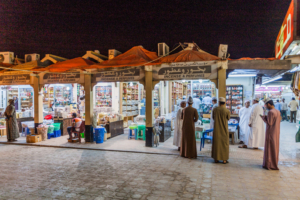
A Sensory Journey Through the Souq
Narrow pathways of Al Haffa Souq lead me into a symphony of sensations that tell Oman’s rich trading heritage.
The aromatic world of frankincense
Magical aromas of burning frankincense fill the thick air. The precious resin comes in several grades:
- Royal Hojari (green-tinted, highest grade)
- Shazri and Najdi (white, medicinal grade)
- Sha’abi (darker variety for burning)
Clay burners with intricate designs line the stalls while fragrant smoke curls upward. Local women manage their aromatic shops and explain each variety’s uses expertly, from healing remedies to ceremonial burning.
Visual feast of traditional crafts
Colors and textures create a mesmerizing kaleidoscope throughout the market. The vibrant displays of traditional Omani garments catch everyone’s attention. Beautifully embroidered kummas (caps), elegant masars (turbans), and flowing scarves adorn the stalls. Market lights shine on handcrafted jewelry, while the region’s artistic heritage shines through intricately designed textiles.
Sounds and atmosphere of ancient trade
Gentle bargaining murmurs blend with vendor calls in this timeless space. Small local cafes nestle between shops, filled with coffee cup clinks and animated conversations. Shopkeepers arrange their wares and connect with visitors through stories, keeping Salalah’s trading legacy alive. Time seems to stand still in this daily rhythm of market life.
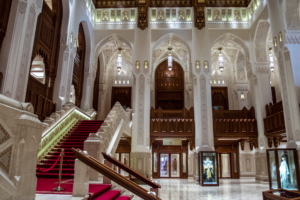
Traditional Treasures and Modern Markets
Let me take a closer look at Al Haffa Souq, one of those special places where old-world trading meets today’s convenience. This market keeps its genuine character while adapting to modern needs, unlike the copy-cat souqs you’ll see in shopping malls.
Ancient trading practices still alive
Bargaining isn’t just allowed here – it’s part of the experience. The shopkeepers respect customers who take part in this age-old tradition. “If you don’t bargain,” a friendly vendor tells me with a smile, “we won’t respect you as much.” Every transaction keeps the spirit of traditional commerce alive.
Contemporary shopping experience
The souq keeps its traditional charm while adding modern comforts. Some shops now have air conditioning that makes shopping more pleasant, especially on warm afternoons. Old-world charm blends naturally with modern convenience, yet the market’s authentic spirit remains unchanged.
Authentic Omani products
Al Haffa Souq stands out with its wealth of genuine Omani merchandise. You’ll find an impressive selection of authentic items:
- Traditional Textiles: Intricately designed abayas, disdashas, and hand-embroidered kummas
- Precious Aromatics: Premium frankincense sold by weight in decorative gold and silver pots
- Local Artifacts: Handcrafted jewelry, traditional pottery, and authentic souvenirs
The local cafes nestled within the souq caught my attention between shopping trips. These small establishments serve some of Salalah’s most authentic local dishes, which adds another genuine layer to the market’s experience.
Insider’s Guide to Shopping
I spent several days learning about Al Haffa Souq and picked up great tips to help you shop better. These secrets come from locals and experienced shoppers who know their way around.
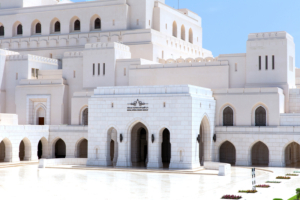
Bargaining etiquette and customs
Bargaining turned out to be more than just getting good deals – it builds relationships. Vendors respond better when you greet them with a smile and “As-salamu alaykum.” Start your negotiations at about half the asking price and stay respectful. A friendly chat over a cup of tea often leads to better prices and real connections.
Best times to visit
The right timing makes a big difference at Al Haffa Souq. The market stays closed from 12-4 PM because of the heat. You’ll have a better time if you go early morning or after 4 PM. The atmosphere comes alive then and the weather feels much nicer.
Local shopping wisdom
My top tips for your shopping trip:
- Bring cash – most small shops don’t take cards
- Dress modestly to respect local customs
- A local friend can help you get better deals
- Look around at different shops to compare prices
- Weekdays are less crowded than weekends
The beauty of Al Haffa Souq shines when you take it slow. Skip the rush and soak in the experience. Talk to shopkeepers and be part of this traditional marketplace that has thrived for generations.
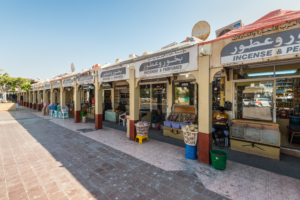
Conclusion
Al Haffa Souq has become the lifeblood of Salalah’s culture during my recent trip there. The ancient marketplace does more than serve shoppers – it breathes life into Omani heritage. Traditional trading customs thrive among modern conveniences here.
The souq reveals something new with each visit. Premium frankincense fills the air with its captivating scent, and traditional Omani hospitality welcomes everyone warmly. Modern shopping centers have lost the precious elements that this market preserves – meaningful human connections and time-honored customs that make shopping special.
The souq gave me more than just traditional items in my shopping bags. Friendly bargaining echoes in my memory, aromatic resins linger in my mind, and coffee-time conversations stay with me. This extraordinary place shows that certain traditions remain relevant in our ever-changing modern world. Pack your bags adventure is just one click away Book Now!
